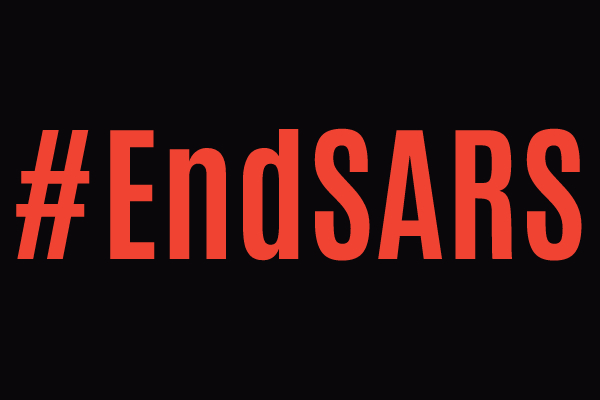This is a call for book chapter abstracts regarding the #EndSARS movement. We seek the reflective recounting of experiences as well as analysis. The selected, peer reviewed, and edited contributions will form a collection of perspectives about African protest spaces.
Background
Nigeria’s potential, 60 after colonial rule, is still brewing. The people of this West African country have achieved phenomenal global successes in every sector. Even so, Nigeria’s youth represent the country’s greatest potential, and they have had little to celebrate. The Special Anti-Robbery Squad (SARS) police unit, established in 1992 to detain, investigate, and prosecute those involved in violent crimes such as armed robbery or kidnapping, gained notoriety for subjecting youth to arbitrary arrest and brutalization.
In the midst of the covid-19 pandemic, Nigeria experienced a social meltdown. Following hot on the heels of highly mediatized social movements like #MeToo and like #BlackLivesMatter, Nigerian youth had had enough. The “giant of Africa” awoke from her lethargy when the youth “seized the day” in October 2020. The movement that ensued played out on two platforms: on the streets of various Nigerian cities and on social media where the hashtag #EndSARS gained global attention.
Call for book chapter Abstracts
This call for abstracts for book chapters, for a book to be published by Langaa Research and Publishing, is meant to give space for scholars, activists, artists, and policymakers to share critical reflections and analysis about and experiences of #EndSARS, including any ripple effects and future dreams. The purpose of the book is to document and share diverse perspectives and reactions to the #EndSARS social movement by commentators who witnessed it up close and those who followed it from afar. The book will contribute knowledge and theory to understanding African social movements.
The book will have 12 to 20 chapters of about 5 to 10 pages each (1500-3500 words approx.). Chapters may integrate poetry or visual representation such as drawings or other artwork (by author only) with a brief description/commentary.
We are also open to comparable experiences from other parts of the continent – explorations of lessons, parallels, or even key differences between Nigeria and other contexts.
Submit chapter abstract by 25 March 2021
If you would like to share your views, as described above, please submit a chapter abstract (“chapter in miniature” of 300 words or one page max) and bio and email for each author (100 words max. per author) by 25 March 2021 to endsars@langaa-rpcig.net and ukaikoo@gmail.com. Work may be submitted as single-author or co-authored pieces. The abstract should include a draft title for your chapter. We hope to respond to all submitters by the end of March 2021 and to request the full chapters on a rolling basis for April, May, or June at the very latest.
We are looking for quality writing imbibed with African ways of thinking, insightful and diverse, perspectives, and diversity among the authors.
Editors
Ukaiko A. Bitrus-Ojiambo is an instructor at St. Paul’s University. Her scholarly contributions and interests are in media cultural studies, African identity, and language in higher education. Ukaiko has fourteen years’ experience in facilitating faculty development workshops and six years’ experience in quality assurance in higher education. Originally born in Nigeria, she now lives in Kenya where she is undertaking doctoral studies in Human Communication at Daystar University.
Oby Obyerodhyambo is a development and health communication expert who has published papers in health, culture, communication, and politics. He is a workshop facilitator, documentarist, social mobilizer, and political advocate. He has designed implemented, trained for, monitored, and evaluated Social and Behaviour Change Communication and gender projects across Africa and India. Oby has supported youth in the development of advocacy strategies, including digital and social media content. He is an art, theatre, and film critic and is currently studying in the School of Communication PhD program at Daystar University.
Ayodele John Alonge is a lecturer at University of Ibadan, Nigeria. He holds a doctoral degree in Communication and Information Studies from the University of Nairobi, and a master’s in Publishing and Copyright Studies and a bachelor’s in Library and Information Studies from the University of Ibadan. He is a graduate of the Consortium for Advanced Research Training in Africa (CARTA) and chairperson of Library Education and Training Institutions Section of the African Library and Information Associations and Institutions (AfLIA). Dr. Alonge initiated “Chronicles of Researchers during COVID-19 Lockdown in Africa.” He also provides social responsibility educational services online to several universities.

